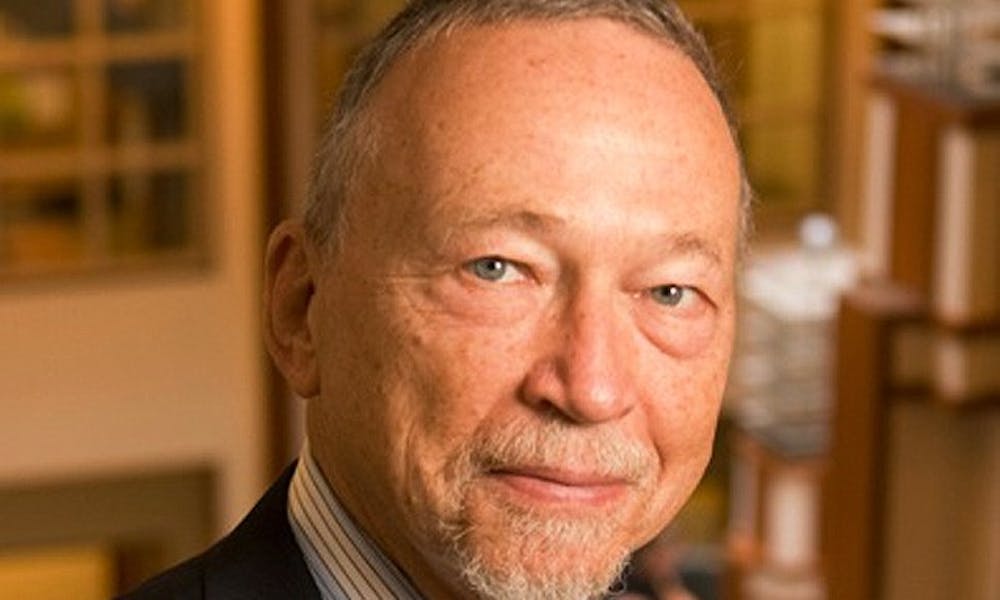Sanford is preparing to usher in a change in leadership, as it conducts its search for a new dean this year.
After years of consistent leadership from the program’s key founders, the Sanford School of Public Policy is ready for fresh insight as the school progresses toward a more international identity among other expansion, said Sanford Dean Bruce Kuniholm, who will step down at the end of this academic year.
Helen Ladd, Edgar T. Thompson distinguished professor of public policy and professor of economics, is the head of the search committee for a new dean. Because the search is still in its early stages, Ladd was unable to comment on any potential nominations.
Ladd said initial feedback Sanford alumni, faculty and students indicates that the community wants a dean with a clear vision for the future of the school and a strong sense of the needs of the students and faculty.
“We would want to make sure that any dean would work appropriately with the faculty to implement any vision going forward,” Ladd said. “We would not want a dean to come in with a specific plan with all the ‘I’s’ already dotted.”
Since its shift from an institute to a school in 2009, Sanford has doubled the size of its faculty—building a strong community of young, energetic professors and researchers, said Kuniholm, who has served on the Sanford faculty since 1975 and led Sanford’s transition to a school.
“One of the things that’s really good about Sanford is that we have a lot of good faculty and staff who have played important roles in our development,” he said. “It’s time for some new blood to come in and build on what we have built.”
The new dean will inherit a school with a solid financial foundation and well-established and respected programs, Kuniholm said, noting that Sanford’s successes to date will ease the dean search because the school is now internationally recognized.
Conversely, the new dean will have to address several more challenging issues—including the upcoming $90 million fundraising campaign, potential international ventures and the extent of Sanford’s professional program offerings—said Philip Cook, senior associate dean for faculty and research and professor of public policy studies and economics. Cook said he considers himself part of the “old guard” that has been with Sanford since its early stages as an institute, and the new dean should make an effort to understand Sanford’s history in order to sustain the school’s success.
Sanford’s $90 million fundraising campaign will begin Fall 2012. The campaign will allow the new dean to execute his vision regarding faculty involvement, Ladd said.
“This will be a substantial amount of new money, so the new dean will be in a terrific position to work with the faculty to figure out a vision and ways to spend any new money coming in an appropriate way that meets Sanford’s needs,” she said.
Cook added that uncertainty about how the new dean will allocate specific resources makes it difficult to predict what Sanford will look like several years in the future.
Kuniholm noted that many of Sanford’s areas of interest—primarily health, education and environmental policies—are global issues. This, combined with the University’s international expansion, is causing Sanford to evaluate its global goals. Sanford wants to build on its current international presence, which includes the Global Semester Abroad program, mid-career education through the Duke Center for International Development, employing international faculty members and educating a diverse group of international students.
“We’ve taken some international initiatives that are very modest, but they are extensions of programs we already have,” he said, adding that Sanford is considering partnering with the Fuqua School of Business on a program at Duke Kunshan University.
Cook also noted that the new Sanford administration should discuss expanding its professional programs. Currently, Sanford’s undergraduate and Ph.D. programs are conducted within Trinity College of Arts & Sciences, and the Master of Public Policy and the Master of International Development Policy are professional degrees—run solely by Sanford. Sanford has the ability to further develop its professional programs, particularly in executive and mid-career education, but Cook said he does not anticipate substantial change in the school’s offerings.
Although there has yet to be extensive talk among faculty on this issue, Ladd said the relationship between professional and liberal arts programs should be a major topic of discussion in the future.
“The new dean will have to find the appropriate balance, depending on what the faculty interests are, but [these kind of changes] also depend on the changing external environment in which we’re operating,” Ladd said. “Depending on who comes in [as dean], we might tilt one way or another.”
Ladd added that she is confident that Sanford will select a dean that will continue the school’s visions and goals, but it is still to be seen what the changes will look like.
“Things will change no matter who the new dean is,” she said. “Many of the senior faculty have been here for a very long time—since Sanford began—that has been wonderful. There will be some real continuity going forward.”
Get The Chronicle straight to your inbox
Signup for our weekly newsletter. Cancel at any time.

